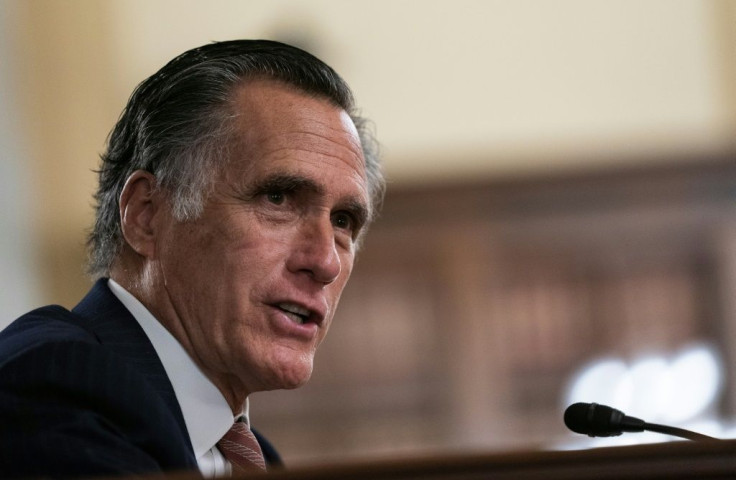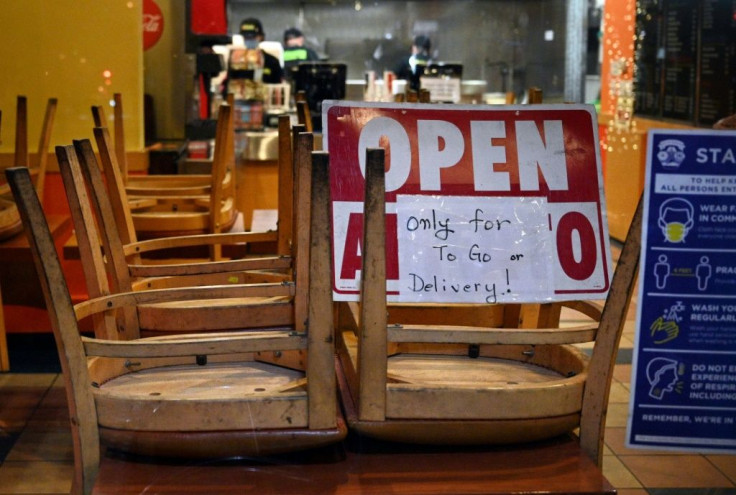Republican Covid Relief Plan Excludes Biden Priorities
President Joe Biden met Monday with a group of Republican senators who are pushing an alternative to his massive COVID-19 relief plan, but no agreement was reached.
Biden, who campaigned on restoring bipartisanship in Washington, wants to spend $1.9 trillion to revitalize the world's largest economy after the pandemic caused waves of layoffs, but Republicans in Congress have said they won't support such a large package.
On Sunday, a group of 10 Republicans detailed a measure costing $600 billion, and Biden responded with an invitation to the White House to discuss the idea.

But no agreement was at hand following the meeting, which Republican Senator Susan Collins described as "frank and very useful," if not conclusive.
"I wouldn't say that we came together on a package tonight. No one expected that in a two-hour meeting," she told reporters.
The senators released a statement Monday night saying the meeting was a "very productive exchange of views" and that they would continue to talk with the Biden administration and other senators "in the coming days" to reach an agreement on a bipartisan relief package.

For its part, the White House said its package "was carefully designed to meet the stakes of this moment, and any changes in it cannot leave the nation short of its pressing needs."
An outline of the Republican proposal shows it excludes aid to state and local governments that Democrats say any package must have. It also gives out stimulus checks of $1,000, less than the $1,400 Biden has proposed, and tightens eligibility.
Democratic leaders responded to the proposal by announcing they were moving ahead with a maneuver in Congress to pass the president's plan without Republican votes, while Biden took to Twitter to restate his case.
"We're facing an economic crisis brought on by a public health crisis, and we need urgent action to combat both," he said. "My American Rescue Plan will dig us out of the depths of these crises and put our nation on a path to build back better."

In a sign of the economy's ill health, the government last week said that the number of new applications for unemployment aid received each week was at 1.3 million, an enormous figure 10 months after business shutdowns began in response to the pandemic.
It also released data showing the country last year suffered its worst contraction since 1946, with the economy shrinking 3.5 percent.
Yet it may be bouncing back faster than expected.
On Monday, the Congressional Budget Office said it expected GDP to reach its pre-pandemic level by the middle of this year, "in large part because the downturn was not as severe as expected and because the first stage of the recovery took place sooner and was stronger than expected."
However, employment will take longer to recover, and while the nonpartisan office serving Congress expected the unemployment rate to gradually decline through 2026, it did not forecast when it would return to the historically low level it hit before the pandemic.
Besides the stimulus checks, Biden's proposal would pay for programs to help schools safely reopen, accelerate Covid-19 testing and vaccine distribution, financially support small businesses and increase food aid for those in need.
Republicans say the bill is far too costly at a time of historic debt levels, and with Congress having already committed some $4 trillion to pandemic relief -- including $900 billion in December.
They want aid more closely targeted to those in need, and their plan's outline shows it apportions a total of $160 billion to fight the pandemic, including $20 billion for a national vaccine program and $50 billion to expand testing.
It also includes $132 billion to extend emergency unemployment provisions through June, but whereas Biden's proposal includes $350 billion in state and local aid, the Republicans' includes zero.
Their plan is backed by 10 senators including party heavyweights like Mitt Romney, the candidate for president in 2012, and Rob Portman, a former director of the White House Office of Management and Budget. If Biden is to achieve his goal of bipartisanship, such a group could prove crucial.
Ten Republican votes would also give Senate Democrats -- assuming they hold together -- enough support to pass the president's plan under normal procedure, which requires 60 out of 100 votes.
Democrats have said they will otherwise turn to a process known as reconciliation, which would allow passage with a simple majority.
On Monday, House Speaker Nancy Pelosi and Senate Majority Leader Chuck Schumer said they had filed a joint budget resolution that marks the first step towards passing the plan through that process.
© Copyright AFP 2024. All rights reserved.





















